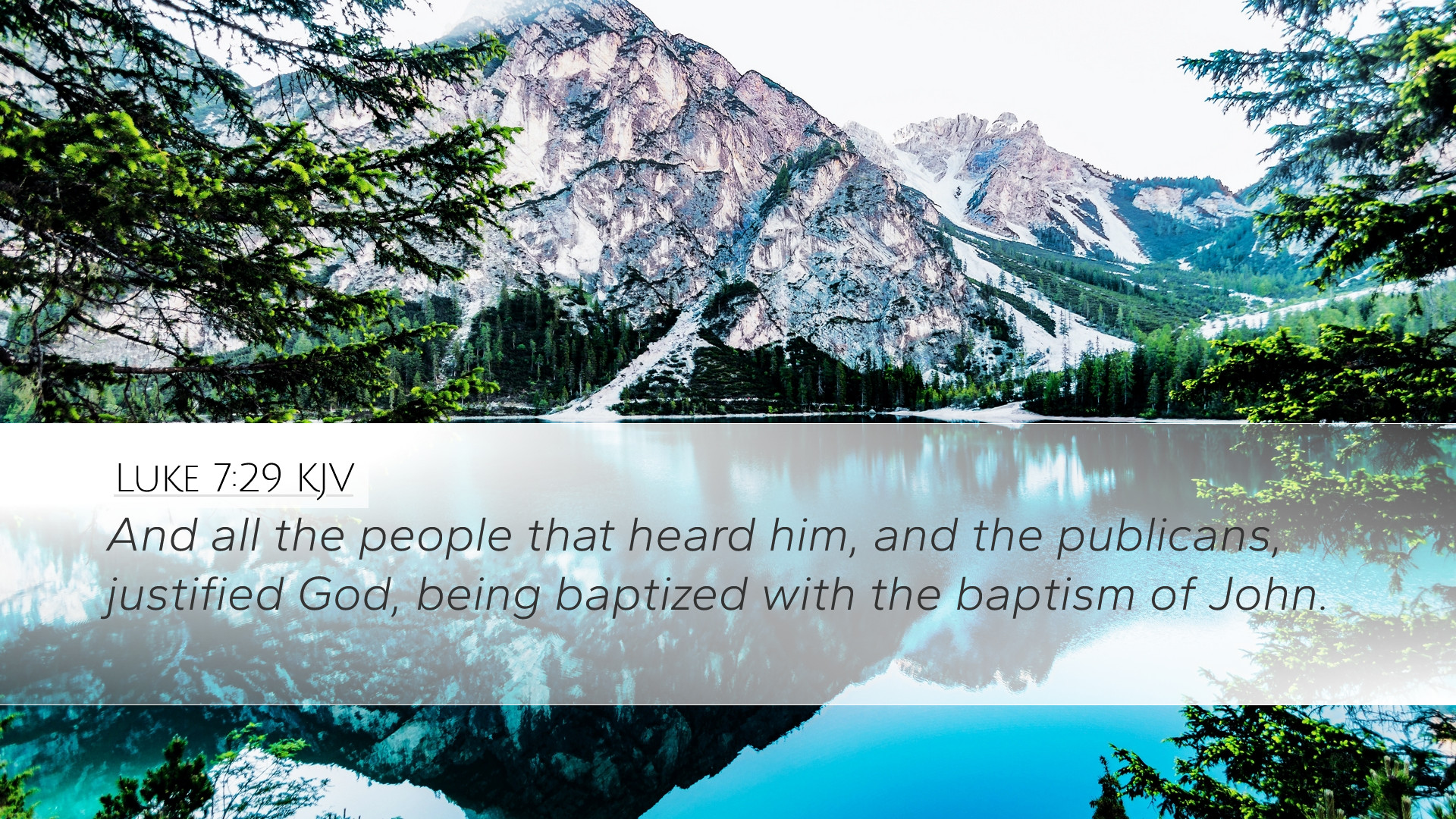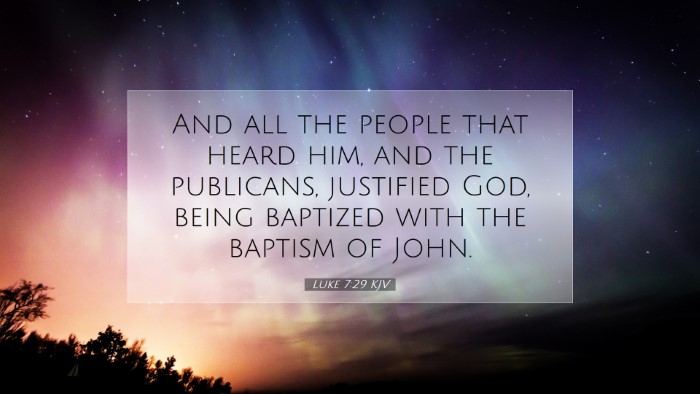Commentary on Luke 7:29
Luke 7:29 states: "And all the people that heard him, and the publicans, justified God, being baptized with the baptism of John." This verse is a significant declaration capturing the response of the people towards the ministry of John the Baptist and is pivotal in understanding the human reception of divine revelation.
Context and Background
The context of this verse follows Jesus’ remarks regarding John the Baptist’s ministry and the people's reactions to it. In the surrounding verses, Jesus contrasts the responses of the observers to John with the responses to His own ministry. This scenario unveils the broader implications of faith and repentance in the public perception of God's message.
Insights from Matthew Henry
Matthew Henry emphasizes that the people justified God by their acceptance of John's baptism, recognizing it as divine in character. He explains that this acknowledgment of John reflects an understanding of God's righteousness, where the people indicated their willingness to submit to the call of repentance that John preached.
- Justification of God: The act of justifying God signifies their recognition of His authority and truth. Henry suggests that such justification involves an active engagement with God's message, rather than mere passive observance.
- The Role of Baptism: Henry elucidates that the baptism of John served as a preparatory rite that symbolized a turning away from sin and an expectation of the coming Messiah. Accepting this baptism implies an acceptance of God’s forthcoming plan and a readiness for the revelation of Christ.
Insights from Albert Barnes
Albert Barnes, in his commentary, focuses on the importance of the publicans and the marginalized responding favorably to John’s message. He notes that their justification of God highlights a radical departure from traditional Jewish expectations of religious leaders and righteousness.
- Inclusivity of God's Call: Barnes points out that the publicans, often deemed sinners and outcasts, found a place in God’s redemptive plan, thereby demonstrating the inclusive nature of God's grace.
- The Nature of Justification: Barnes explores the theological implications of justifying God, illustrating it as an acknowledgment of God’s justice and goodness. This aligns with the theme of repentance and the acceptance of divine judgment through John’s ministry.
Insights from Adam Clarke
Adam Clarke provides a detailed analysis of the socio-religious implications embedded in this verse. He notes that the public acknowledgment of John’s baptism represented a societal shift in perceiving prophetic authority.
- Prophetic Authority: Clarke suggests that the endorsement of John by the masses indicates a prophetic recognition of God’s work in their lives, serving as a crucial step toward receiving Christ.
- Spiritual Awakening: He posits that the response of the people illustrates a collective spiritual awakening, a pivotal moment where individuals began to sense their need for divine mercy and redemption.
Theological Reflections
This passage invites several theological reflections that are critical for pastors, students, and scholars:
- The Nature of Response to Divine Authority: The varied reactions to John’s ministry highlight the persistent human struggle to recognize and submit to God's authority, urging contemporary believers to reflect on their own responses to God’s call.
- The Relationship Between Faith and Action: The verse reinforces the biblical understanding that true faith is demonstrated through actions, particularly in the acceptance of baptism, which symbolizes obedience and commitment.
- Societal Transformation: The inclusion of publicans and sinners suggests that the Gospel transcends societal barriers, challenging the Church to be a welcoming community that embraces all who seek redemption.
- The Concept of Justification: The idea of justifying God prompts believers to contemplate their own justification in the eyes of God, emphasizing the importance of repentance and faith.
Conclusion
Luke 7:29 serves as a profound reflection on the nature of repentance, the inclusivity of God's message, and the necessity of recognizing divine authority. Through the insights provided by esteemed commentators like Matthew Henry, Albert Barnes, and Adam Clarke, we are led to a deeper understanding of our response to God's call and the implications of our faith in the contemporary world.


